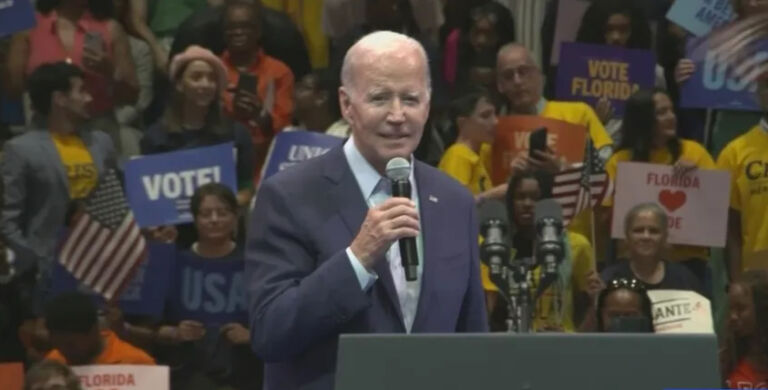The unlegislated tax of inflation plagues small businesses with higher costs, threatens to reverse recovery, and stifles optimism.
Unlike an Apple or a Walmart, the average small business cannot draw on reserves in the same way to help weather an economic downturn. A small business has fewer resources and less wiggle room to diversify, innovate or automate when facing skyrocketing prices.
Surveys from the U.S. Chamber of Commerce, the National Federation of Independent Businesses (NFIB), and Goldman Sachs confirm that inflation is the number one issue facing small businesses.
According to the NFIB Small Business Optimism survey, 72% of small business owners (seasonally adjusted) reportedly raised average selling prices, the highest percentage in the survey’s 48-year history.
NFIB President Brad Close in a Fox Business op-ed last week wrote, “Inflation is small business owners’ biggest concern. No wonder: Inflation stops them from creating jobs, giving back to their communities, and planning for the future.”
Small businesses are discouraged. And expectations for conditions improving have worsened since January and in May, reached an all-time low.
Haven’t small businesses been through enough? They are struggling to survive in an economy battered by government shutdowns and federal “aid”.
Active small businesses fell 22% during the first two months of the pandemic according to a study from the National Library of Medicine. Permanent closures prove difficult to calculate as some businesses rebounded, yet even conservative estimates show hundreds of thousands of small businesses closed for good amid government-mandated shutdowns and restrictions.
The Paycheck Protection Program did help some businesses weather the pandemic, yet for many it wasn’t enough to offset the losses from shutdowns. They wanted to get back to work.
And with labor market tightness, 92% of small business owners report few or no qualified applicants for their open roles. Business owners must spend even more to attract workers as inflation is wiping out real income growth.
NFIB leader Brad Close understands that looking to Washington for solutions is asinine. Instead, Close suggests Congress learn from the states: “Only in Washington does it make sense to saddle the small business economy with new taxes and mandates. … If Congress doesn’t have any good ideas, they should look to the states for pro-growth solutions.”
Thankfully, North Carolina has led the way on providing tax relief for small businesses. North Carolina’s sluggish growth before 2013 has been reversed thanks to fiscally conservative leadership. Restrained spending and tax cuts allowed the state to prosper. The latest personal income tax reduction, once fully phased in, will result in our state boasting the fourth lowest rate in the nation, among states that levy the tax.
People (and businesses) are migrating to North Carolina in droves. North Carolina has the third-highest net in-migration of the last decade, after just Texas and Florida, states that both have no personal income tax.
Washington may not care about small businesses. North Carolina certainly does.


